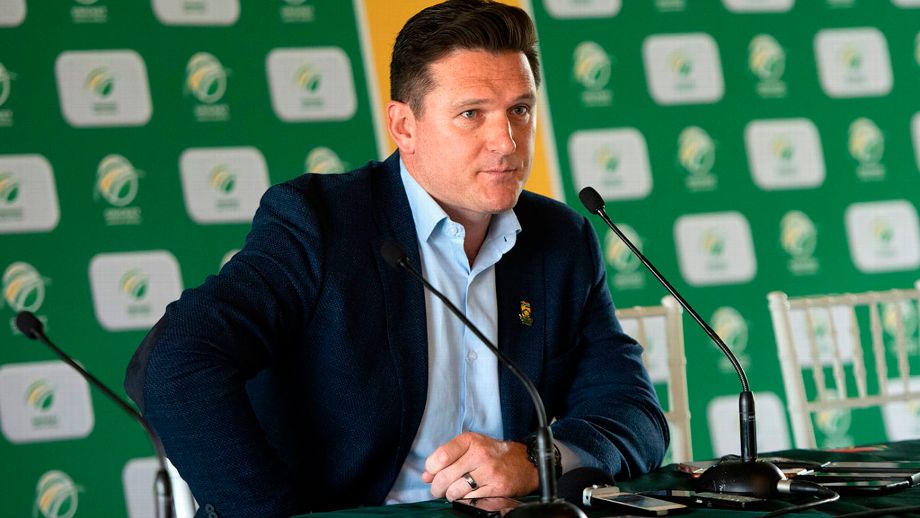2019-20 was the season in which a dangerously over-heated system finally exploded. Cricket’s mess will take months – if not years – to wipe off the walls, writes LUKE ALFRED.
A low-level crisis had nibbled at the edge of public awareness for months, until it suddenly gathered speed during one traumatic week in December.
By the end of it CSA had lost a chief executive – the official phrase used by Cricket SA was ‘precautionary suspension’ – a brand-new coach, several independent directors and a key sponsor.
That was just the beginning …
After the week of high drama, a new regime was installed. Changes were made – more of this in a minute – but these weren’t universally popular because they were seen as clumsy and apparently nepotistic. There was a period in which it was feared that one racial elite had simply displaced another.
A couple of months before that, in the faraway Indian city of Vishnakapatnum, the international season had started on a hopeful note, Dean Elgar (160) and Quinnie de Kock (111) scoring first-innings centuries against India in to keep the Proteas in touch with the hosts’ massive first innings total.
It was a false dawn.
As the three-match Test series progressed, the Proteas’ were exposed. Thabang Moroe, who was still in his post as CSA chief executive, urged the nation to be ‘patient’, a statement with a resoundingly hollow ring.
Despite the playing success of the Mzansi Super League a couple of weeks later, it was becoming increasingly apparent that Moroe was living in an echo chamber.
THEN AND NOW: Lessons from the pitch
At the time CSA were still bogged down in an arm-wrestle with the SA Players’ Association SACA, a situation dating back to June, when SACA took them to court for failing to engage over a proposed re-structuring of the domestic format.
Litigation was in the air because CSA had also sleepwalked into an altercation with the WP Cricket Association over financing to the new developments at Newlands. In their wisdom, CSA decided to exercise their ‘step-in’ rights, and suspend the entire WPCA board.
The WPCA board were so affronted, that they took CSA to court.
READ: Faul named acting CSA CEO
In November, advocate Phillip Ginsburg ruled that CSA had violated their own Memorandum of Incorporation by exercising their step-in rights and exonerated WPCA.
If CSA were dropping the ball on the legal front, neither were they in robust health internally.
On the eve of the MSL they suspended three senior staff members – Naasei Appiah, Corrie van Zyl and Clive Eksteen – for apparent negligence when dealing with SACA. Publicly CSA argued that they had no cash but privately they were spending it hand over foot.
Morale in CSA’s spanking new office on Glenhove Avenue in Jo’burg was poor and the company, through the expensive and under-sponsored tournaments like the MSL – was haemorrhaging money.
All of this was important, but clearly not important enough, because the straw that broke the camel’s back in December was the revoking of five senior journalists’ accreditation.
Suddenly here was an act a weary public could understand. From a distance CSA’s actions seemed petty and unnecessary. The media and civil society voiced their disapproval. The outpouring of opprobrium was widespread, with even those who had sat on the fence – like CSA lead independent director, Iqbal Khan – belatedly scrambling for the high moral ground. It was Moroe’s last week in office.
READ: Van Zyl back with Cricket South Africa
Jacques Faul, Moroe’s temporary replacement, has brought calm to the organisation in the three months that he’s been in the big office. Van Zyl has quietly been forgiven – he is currently attempting to solve the mess at Border cricket – while a forensic audit with wide scope is sifting through financial transactions going back 48 months. Appiah’s and Eksteen’s use of the company credit card will be looked into.
While no-one doubts Faul’s good intentions, the public is entitled to know why Moroe’s bombastic reign was allowed to continue unchecked for so long?
They are also entitled to know why successive CSA boards were unable to govern with intelligence and foresight in the tricky post-Haroon Lorgat period, the period in which Moroe made his play?
Will these questions ever be answered?
It seems unlikely …
On the playing front, three lucrative T20s are being planned in South Africa against India in August or September ahead of the World T20 in Australia in October; should it go ahead. Last month, a large combined CSA and SuperSport delegation visited Imtiaz Patel of Multichoice in Dubai. The main subject of discussion was edition three of the MSL, which the pay TV channel has agreed to pay R40-million annually to show.
There is an active drive to draw former Kolpak players – Kolpak fell away when Great Britain withdrew from the European Union – back into the fold. It is hoped that some, like Simon Harmer and Kyle Abbott, might become available for the World T20, but apparently a player like Dane Vilas, currently captain of Lancashire, is also on CSA’s radar.
The impasse between CSA and SACA will be resolved before the end of June but SACA have already withdrawn their High Court action and the parties have agreed to consultation. It looks increasingly unlikely that the current six-team franchise system will be tampered with, particularly given the Proteas dwindling fortunes internationally.
Those fortunes are largely in the hands of Mark Boucher and Graeme Smith, new coach and director of cricket, respectively. Under Boucher the Proteas have played some spirited cricket – the Centurion win over England in the Boxing Day Test, the 3-0 ODI series win against Australia – but they’ve played some horrifyingly ordinary cricket, too, a case in point being the T20s against Aussies.
Only time will tell how much the Boucher-Smith axis have the stomach for the profoundly unsexy drudgery of re-building in the months to come.






